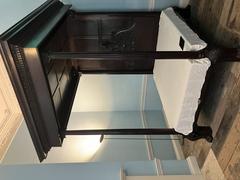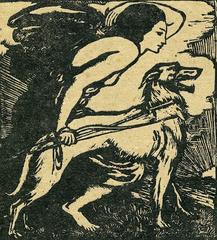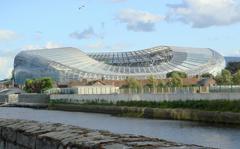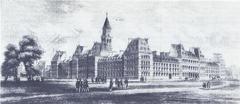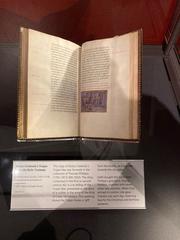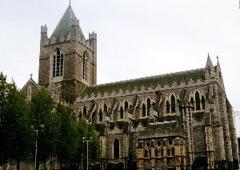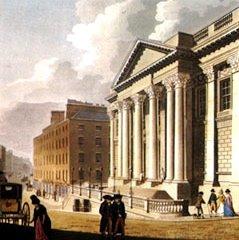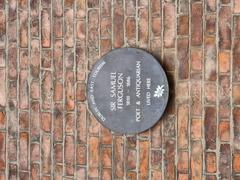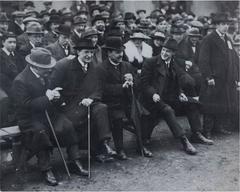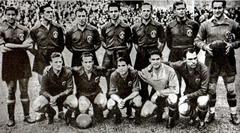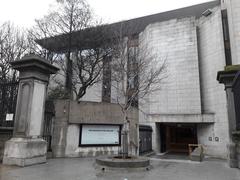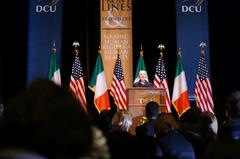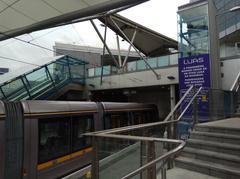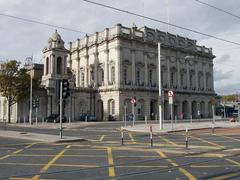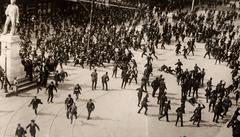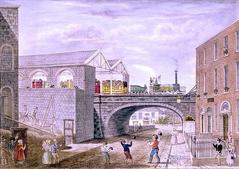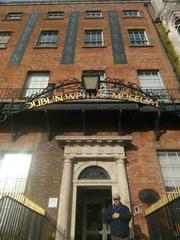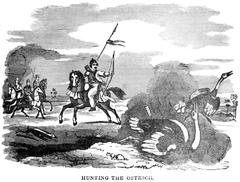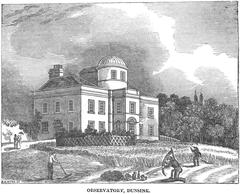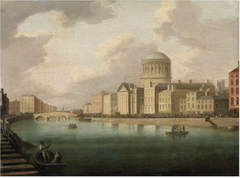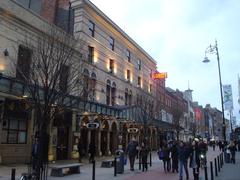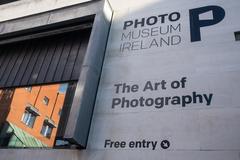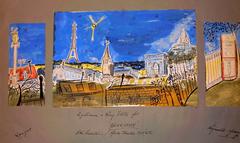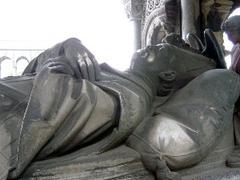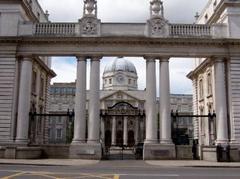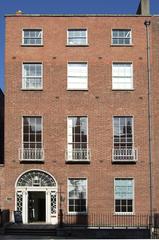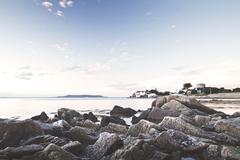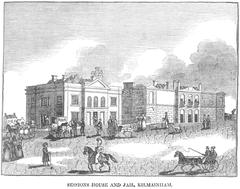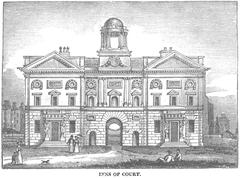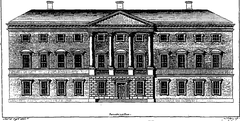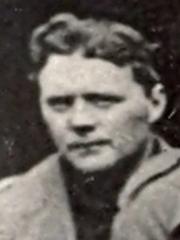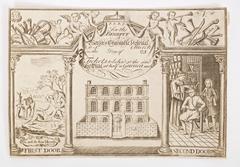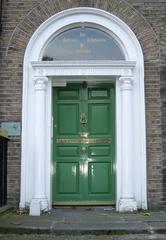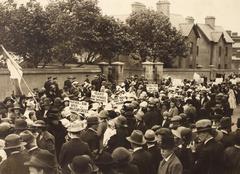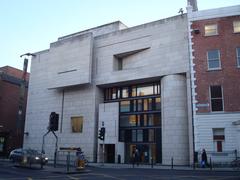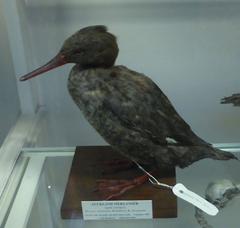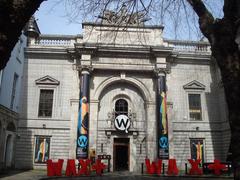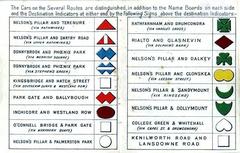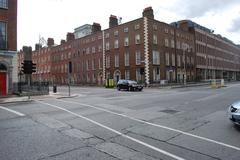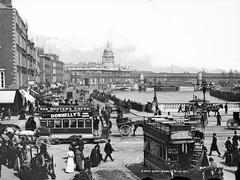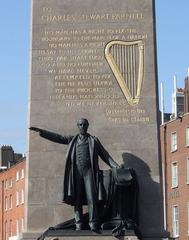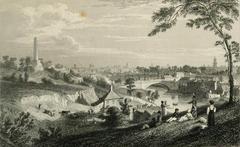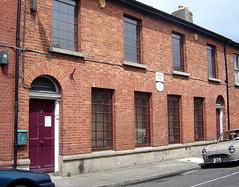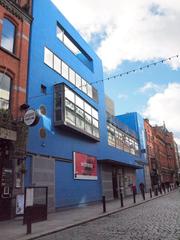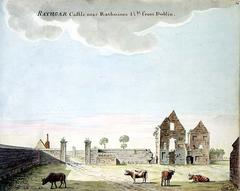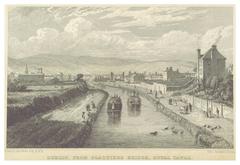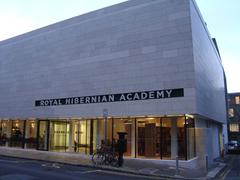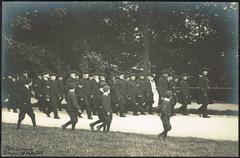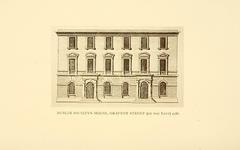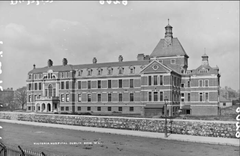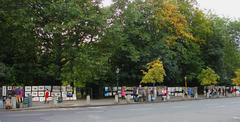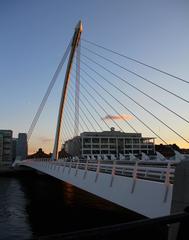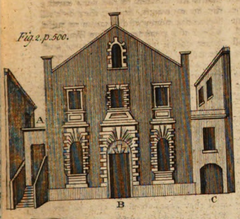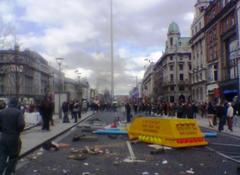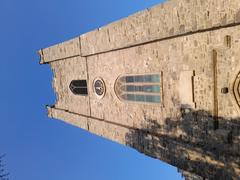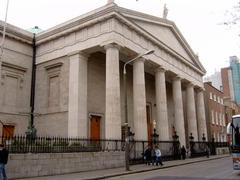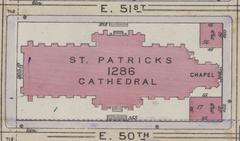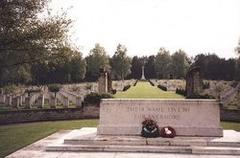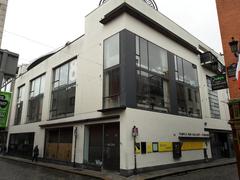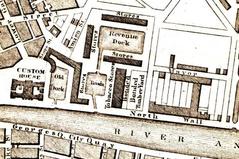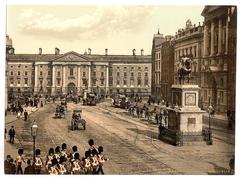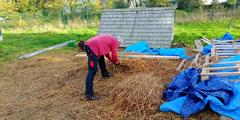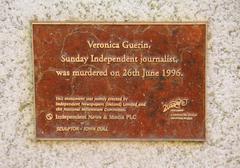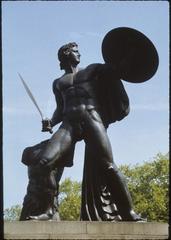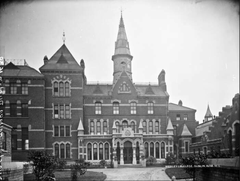Samuel Beckett Theatre Dublin: Visiting Hours, Tickets, and Historical Sites Guide
Date: 14/06/2025
Introduction: The Samuel Beckett Theatre’s Role in Dublin Culture
Located within the storied campus of Trinity College Dublin, the Samuel Beckett Theatre is a cornerstone of Ireland’s performing arts scene. Founded in 1992 for Trinity College’s 400th anniversary, the theatre both honors Samuel Beckett—Nobel Prize-winning playwright and Trinity alumnus—and acts as a hub for innovation, education, and performance in Irish theatre (Samuel Beckett Theatre About). Its distinctive timber-clad architecture, inspired by Elizabethan playhouses and designed by de Blacam & Meagher, signifies a harmonious blend of historical reverence and cutting-edge design (Archiseek).
Serving as the principal venue for Trinity’s School of Creative Arts and as a regular host for major festivals, the Samuel Beckett Theatre welcomes students, professionals, and visitors to experience a diverse array of performances, workshops, and community events. Its central location provides easy access to Dublin’s literary and historical landmarks, making it an essential stop for anyone interested in the city’s vibrant culture (Visit Dublin).
Table of Contents
- Origins and Architectural Context
- Samuel Beckett: Namesake and Legacy
- Trinity College Connection and Educational Role
- Cultural Significance and Festivals
- Visitor Information: Hours, Tickets, and Directions
- Facilities, Accessibility, and Audience Experience
- Programming and Events
- Travel Tips and Nearby Attractions
- Dining and Accommodation
- Frequently Asked Questions (FAQ)
- Conclusion and Key Visiting Tips
- References
Origins and Architectural Context
Established in 1992, the Samuel Beckett Theatre marks Trinity College’s quatercentenary and reflects the university’s commitment to fostering the creative arts (Trinity College Dublin History). The theatre is part of the Samuel Beckett Centre, which also houses academic spaces, rehearsal studios, and the Players Theatre—a venue for Trinity’s student drama society, Dublin University Players.
The theatre’s design stands out for its timber battened cladding—the only such structure on campus—which weathers over time to a distinguished silvery-grey. Its steep roof, monumental windows, and Elizabethan-inspired façade make it a prominent modern landmark that still harmonizes with Trinity’s historic architecture (de Blacam & Meagher; Buildings of Ireland; University Times).
Internally, the theatre’s main spaces—including a 200-seat main auditorium, a 75-seat Players Theatre, and a dedicated dance studio—are designed for maximum flexibility and technical sophistication, supporting everything from experimental theatre to large-scale dance productions (Trinity College Dublin).
Samuel Beckett: Namesake and Legacy
Samuel Beckett, one of the 20th century’s most influential playwrights, is synonymous with Irish literary achievement. A Trinity alumnus and Nobel Laureate, Beckett’s avant-garde works, particularly “Waiting for Godot,” have had a profound impact on global theatre (Dublin Theatre Overview). The theatre’s name reflects both his pioneering spirit and the ongoing commitment to experimental, thought-provoking performance.
Trinity College Connection and Educational Role
The Samuel Beckett Theatre is the beating heart of Trinity’s School of Creative Arts. During the academic year, it serves as a professional-standard training ground for students, offering opportunities to work on all aspects of theatre production. During festival periods and summer, the venue opens its doors to professional companies and international collaborations, bridging the gap between education and the broader arts community (Samuel Beckett Theatre About).
Cultural Significance and Festivals
A fixture in Dublin’s festival landscape, the Samuel Beckett Theatre is a primary venue for the Dublin Theatre Festival, Dublin Fringe Festival, and Dublin Dance Festival (Dublin Dance Festival Programme). It hosts world premieres, interdisciplinary productions, and groundbreaking performances that draw audiences from across Ireland and abroad.
The theatre regularly supports socially engaged and inclusive programming, including relaxed, captioned, and audio-described performances, and participates in artist development initiatives like the Fortnight Festival and The Next Stage (Solo Sirens Symposium).
Visitor Information: Hours, Tickets, and Directions
Visiting Hours:
- Monday to Friday: 10:00 AM – 9:00 PM
- Saturday: 12:00 PM – 6:00 PM
- Closed Sundays and public holidays
Hours may vary depending on performance schedules. Check the official website for the most current hours.
Tickets:
Available online via the theatre’s website, at the onsite box office, or through authorized ticketing partners. Prices range from €10–€25, with concessions for students, seniors, and groups. Advance booking is recommended during festivals.
Directions:
Located in the Samuel Beckett Centre on Pearse Street, the theatre is accessible from central Dublin by foot, bus, DART (Pearse Station), or Luas tram (Dawson Street). Enter Trinity College via the Nassau Street or College Green gates and follow campus signage.
Accessibility:
The entire venue is wheelchair accessible, with step-free entry, accessible restrooms, and designated seating. Assistive listening devices and guide dog facilities are available (Trinity College Dublin – Your Visit).
Facilities, Accessibility, and Audience Experience
The theatre’s facilities include:
- Spacious foyer with pre-show displays
- Modern auditorium with excellent acoustics and sightlines
- Rehearsal studios and seminar rooms
- Accessible restrooms and step-free routes
The Samuel Beckett Theatre prides itself on its welcoming, informal atmosphere. Dress codes are relaxed, and the tradition of pre-ordering interval drinks at the theatre bar provides a uniquely local touch (Dublin Theatre Bars).
Programming and Events
Year-Round Programming
-
Student and Academic Productions:
Trinity’s Drama and Theatre Studies students produce a variety of public performances, offering audiences insight into emerging talent (Drama and Theatre Studies). -
Professional and Visiting Performances:
Regularly hosts established Irish and international companies, particularly during festival seasons. -
Musical Theatre Dublin Summer Program:
Intensive three-week summer courses for teens (ages 13–18), culminating in full-scale performances (Musical Theatre Dublin). -
Festivals and Special Events:
Includes premieres, dance performances, masterclasses, and artist panels. -
Educational Outreach:
Workshops, school tours, and community engagement projects.
Travel Tips and Nearby Attractions
On Campus:
- Book of Kells & Long Room Library:
Trinity’s most famous attractions, showcasing rare manuscripts and stunning architecture (Forbes).
Nearby:
- Grafton Street: Shopping and dining
- Dublin Castle, Abbey Theatre, Gate Theatre, Gaiety Theatre: Celebrated venues and historic sites
- Temple Bar District: Nightlife and live music
- National Gallery of Ireland, St. Stephen’s Green, Merrion Square: Museums and parks
Getting There:
Use public transport (bus, DART, Luas) for convenience. No visitor parking on campus; nearest public car parks are Setanta Place and Dawson Street.
Dining and Accommodation
- On-campus cafés: Buttery and Perch Café
- Nearby restaurants: Range from casual to fine dining on Nassau Street and Grafton Street
- Accommodation: City centre hotels (The Merrion, The Shelbourne), budget options in Temple Bar and Docklands
Frequently Asked Questions (FAQ)
Q: What are the theatre’s visiting hours?
A: Monday–Friday: 10:00 AM–9:00 PM; Saturday: 12:00 PM–6:00 PM; closed Sundays/public holidays. Performance hours may vary.
Q: How can I buy tickets?
A: Purchase online via the official website, at the box office, or through festival partners.
Q: Is the theatre accessible?
A: Yes—step-free entry, wheelchair seating, accessible restrooms, and assistive listening devices available.
Q: Are guided tours offered?
A: Occasionally, as part of Trinity Trails. Check the theatre’s events page for updates.
Q: Are photos or recordings allowed?
A: Not during performances, to protect artists’ rights.
Conclusion and Summary of Key Visiting Tips
Since its opening, the Samuel Beckett Theatre has been a nucleus of Dublin’s cultural life—bridging educational excellence with professional performance and community engagement. Its iconic architecture, diverse programming, and inclusive ethos make it a must-visit for theatre lovers and cultural explorers alike (Samuel Beckett Theatre About; Dublin Dance Festival Programme). Centrally located in Trinity College, the theatre offers seamless access to Dublin’s top attractions, enriching every visit with history and artistry (Forbes). For up-to-date schedules, tickets, and events, consult the Samuel Beckett Theatre website, and enhance your experience with the Audiala app.
References
- Samuel Beckett Theatre About
- Dublin Dance Festival Programme
- Archiseek
- Trinity College Dublin History
- University Times
- de Blacam & Meagher
- Buildings of Ireland
- Visit Dublin
- Trinity College Dublin – Your Visit
- Forbes
- Drama and Theatre Studies
- Musical Theatre Dublin
- Trinity Trails
- Dublin Theatre Overview
- Dublin Theatre Bars
- Solo Sirens Symposium
